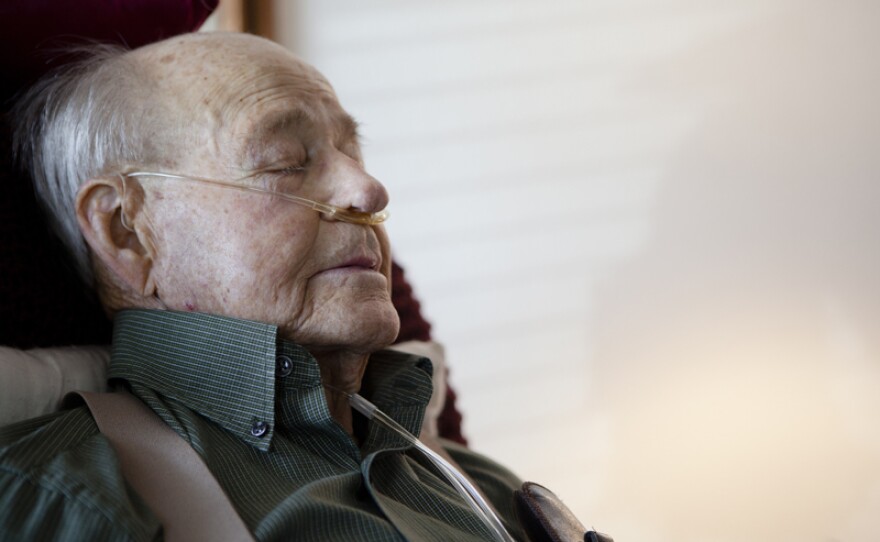LC Salis is dying. But according to the federal government, he may not be dying fast enough.
Salis, who has stage four heart failure, has chosen to receive medical care through a hospice, a type of care for people with less than six months to live. But LC has been in hospice care for about 13 months.
This week, the KPBS/Investigative Newsource team published the first part of their in depth series on hospices. They’ve found that a growing number of people are choosing hospices, and that more people are living longer once they enter hospice care. This combination has led to spiraling costs and Medicare audits.
Sharp Hospice officials also spoke to KPBS this week about these issues. The chief medical officer for Sharp Hospice said the traditional health care model does not provide the services hospices do.
"We don't have a good system right now to fill in that gap," he said.
More Stories This Week
-The Plaza de Panama plan to remove cars from the center of Balboa Park is officially dead. That’s what Irwin Jacobs, the project’s funder, told us this week.
But Bruce Coons, the director of the Save Our Heritage Organisation that had sued to stop the project, said he believes the judge’s ruling opens the door to other ways of getting cars out of the Plaza.
-Want to teach like they do at High Tech High, a unique charter school in San Diego? Well, now there’s a graduate school for that. The school teaches teachers how to lead unconventional classes like those offered at High Tech High.
-I never would have guessed Rio Vista West in Mission Valley was designed to be walkable. This fascinating story explains that is was, and shows what went wrong in the neighborhood's attempt at smart growth. It also shows the challenges neighborhoods face when they try to reduce residents' reliance on cars. Let's hope future neighborhoods in San Diego have better luck.






